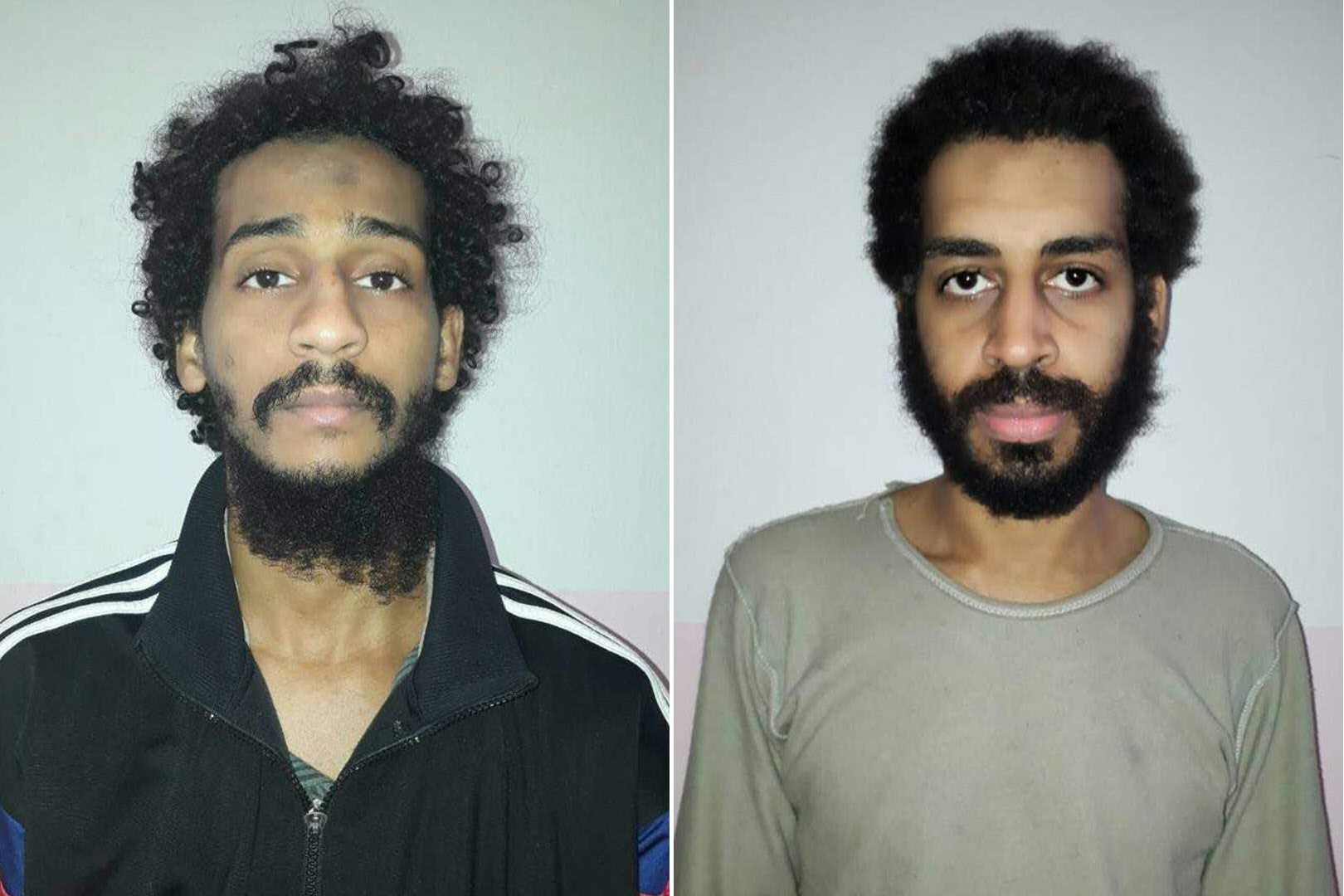Isis ‘Beatles’ can stand trial in US after High Court ruling
UK will hand over requested evidence as result of ruling

The mother of a suspected Isis terrorist has lost a High Court challenge against the UK home secretary’s decision to share evidence about her son with US authorities.
Maha Elgizouli’s lawyers had argued the move was unlawful as it was incompatible with the Data Protection Act and asked the court to order that no material should be provided to the US in a hearing in London on 11 September.
The case was rejected on Tuesday.
Ms Elgizouli’s son, El Shafee Elsheikh, and Alexanda Kotey are accused of belonging to a group of militants dubbed “The Beatles” because of their British accents who executed a number of Western captives.
The hearing into Priti Patel’s decision to share evidence was held urgently as the US government indicated it will transfer the pair to Iraq for trial, where if found guilty they will be executed, if it does not receive all the evidence the UK has by mid-October.
As a result of the ruling, the evidence requested can now be handed over to the US authorities by the UK government.
Ms Elgizouli brought a judicial review earlier this month over Ms Patel’s decision on 24 August to provide material to the American government under a "mutual legal assistance" request, ahead of an intended prosecution in the US.
Her lawyers said the transfer of the evidence was "not strictly necessary" as it was made at a time when the Director of Public Prosecutions was due to make a decision "imminently" about whether there was enough evidence to prosecute Mr Elsheikh in the UK - which US authorities previously indicated a preference for.
Dame Victoria Sharp and Mr Justice Garnham rejected the case on Tuesday, saying it was "not properly arguable".
Dame Victoria said previous expressions of preference as to where a prosecution should take place were of "no relevance" to the issues the court had to decide.
She added: "The conclusion that, even if Mr Elsheikh could be prosecuted in England, it would still be necessary and proportionate to transfer the data to the US authorities remained a conclusion properly open to the Secretary of State."
Mr Elsheikh and Mr Kotey, who have had their British citizenship removed, have been accused of belonging to a cell of executioners in Syria, which also included Mohammed Emwazi, known as ‘Jihadi John’, who was killed in a US air strike in 2015.
They are accused of being involved in Islamic State killings, including the deaths of US journalists James Foley and Steven Sotloff and British aid workers David Haines and Alan Henning.
Mr Elsheikh and Mr Kotey, who were raised in the UK, were captured in 2018. They were held in custody in Iraq before being moved to the US.
Additional reporting by Press Association
Join our commenting forum
Join thought-provoking conversations, follow other Independent readers and see their replies
Comments


Bookmark popover
Removed from bookmarks